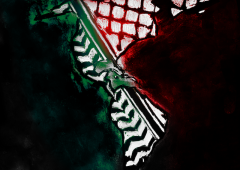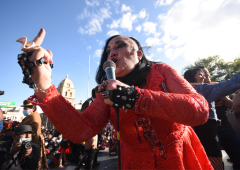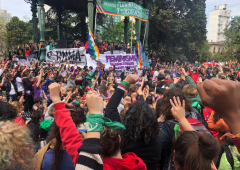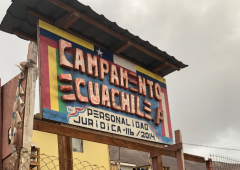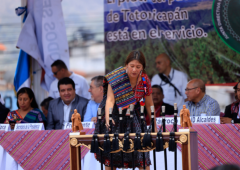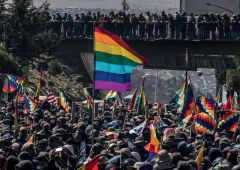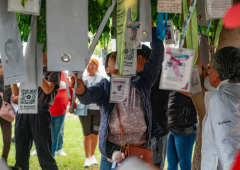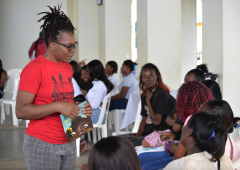Recent Articles in the NACLA Report
The Winter 2024 issue of the NACLA Report explores transcontinental encounters between the land of historical Palestine and the land we know as the Americas.
For anarchist feminist María Galindo, the plurinational state was always doomed to reproduce oppression. A radical, anticapitalist alternative calls for rethinking colonial and patriarchal relations.
A continental feminist network enshrined its commitment to plurinationalism. What comes next in the collective struggle of women and trans, travesti, and nonbinary people across the hemisphere?
Grassroots migrant communities in the northern border region have organized plurinational politics from below, pushing back against criminalization by asserting plurality on their own terms.
Ancestral authorities played a decisive role in counteracting a right-wing backlash. In their vision for liberation, alternatives are built from the grassroots, regardless of the government in power.
The lofty promises of plurinationalism remain an unfinished project. The Fall 2024 NACLA Report explores how plurinational politics are organized and articulated at the margins of state power.
A transnational adoptee born in El Salvador and raised in the United States shared his journey to uncovering his family's truth and finding his voice as a desaparecido.
Among the unanswered questions about the military’s response to the 1985 attack on the seat of the judiciary is what happened to the disappeared victims. New research sheds light on the role of an unassuming museum.
As a far-right, denialist government threatens to roll back hard-won gains, Argentine feminists and the mothers and grandmothers fighting for justice for the disappeared remain linked in a decades-old friendly bond of struggle.
As the government hides the staggering proportions of Mexico’s forensic crisis, the searching families of El Bosque de la Esperanza take control of their own narratives to resist stigmatization and erasure.
Disappearance cuts through the Americas. The pain, grief, and resilience of the region's struggles for justice is the focus of our Summer 2024 NACLA Report, "¿Dónde están?"
New expressions of ultranationalist violence censoring Black women and migrants harken back to the Trujillo dictatorship. Anyone deemed a threat to Dominican values is a potential target.

